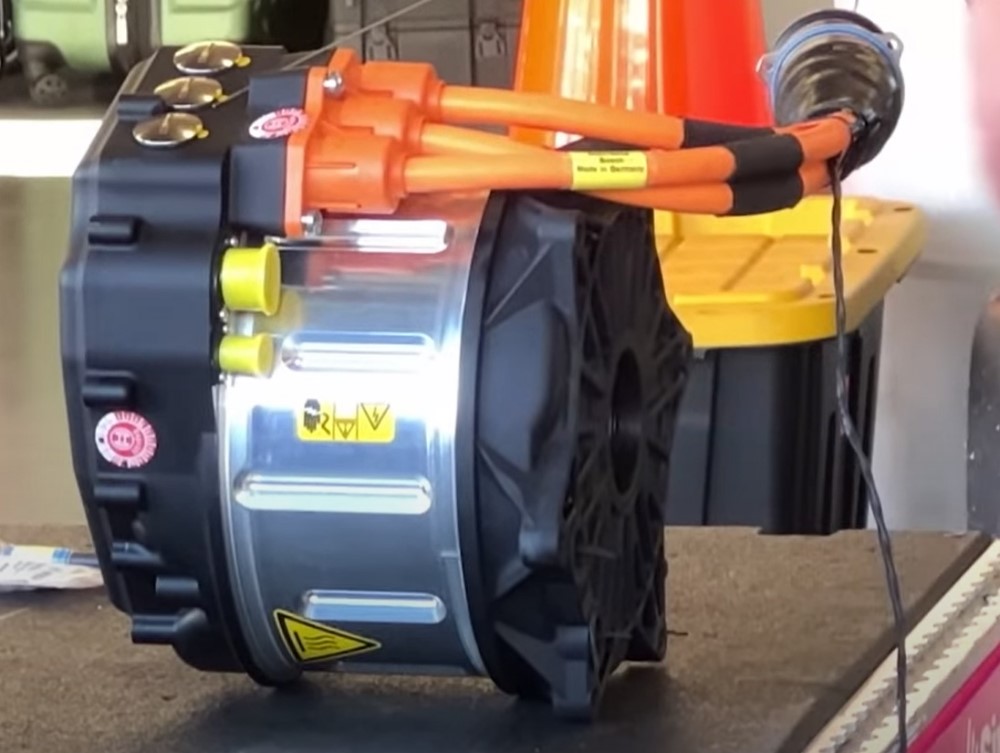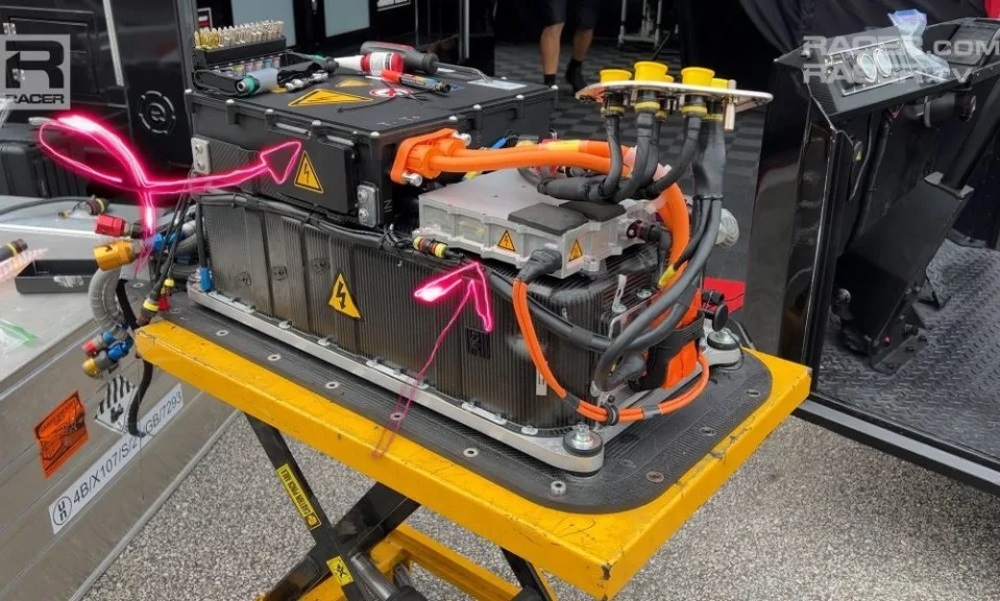IMSA: GTP teams worried ‘spec’ IMSA hybrid system won’t last 24 Hours
All the GTP teams in today’s Rolex 24 are concerned the ‘spec’ hybrid system supplied to them from IMSA will fail. It is made by Williams Advanced Engineering
700 v Lithium-ion battery, the inverter and the DC-to-DC volt converter make up the $220,000 ESS – Energy Storage System. The teams never want the battery state of charge to drop below 30% nor exceed more than 90%.
The other key part of the hybrid system is the Motor Generator Unit (MGU) made by Bosch that attaches to the Internal Combustion Engine that acts as both a starter, the electric motor and a generator. Combined the MGU and ICE make a maximum of 670 hp. The MGU only makes a maximum of 40 hp. Compare that to the 2026 F1 cars where the MGU will make around 500 hp.

If the MGU fails the battery will no longer be charging the battery and when the battery runs out of charge the car will shut down. If the $50,000 MGU fails, it will be a minimum 2-hour change and your chance for victory will be over.
The teams are most worried about the ESS. The cars carry no alternator as the ESS handles all the electrical needs for the car for lights, electronics, computers and power to the electric motor.
If it fails on the car, the car will shut down and it will take between 30 minutes and 1-hour to replace, and your chance for victory will be over.

Ricky Taylor, driver of the #10 Wayne Taylor with Andretti Acura said “If you talk about the pace of the car, I’m confident,” he told Motorsport.com, “but outside of that I don’t think anybody can really have a lot of confidence in reliability. It’s so unproven.
“We’ll just react to whatever happens and try and fix problems as they come, which is normal in an endurance race – you are always fixing problems. This year they might be just a little bit more severe and complicated. I think every GTP car is going to have some obstacles, some big obstacles…”
The multiple sensors on the new hybrid cars have required multiple resets through last week’s Roar Before the 24 and this week’s practice for the Rolex 24 Hours, but Taylor says that is preferable to going into ‘limp mode.’
“We’ve got a button that clears error and that button I’m pretty sure we are going to need a new one because it is worn out!” he smiled. “So in practice, we have a lot of scenarios where the car will go into limp mode.
“That’s not going to happen in the race. The car is not going to have a limp mode… because it is going to be in limp mode half the race if we have a limp mode. We are going to clear sensors, we are going to be doing all of that throughout the race, I’m sure.”
Porsche worried too
“We haven’t had many issues on the cars, which is positive going into the race,” Porsche driver Mathieu Jaminet told Sportscar365.
“Nobody was really sure coming into the weekend how the car is going to be running.
“We’ve seen pretty much every session everybody is out there testing things. We want to see all cars racing for the win.
“But it’s a long race. I’d be surprised if the nine cars arrive into the last two hours and everybody is on the lead lap. From our side, we feel prepared. I believe we should be alright.”
Campbell added: “The feeling going into the Rolex hasn’t really evolved, but the focus has changed a lot.
“There are a lot more in-depth meetings on systems and ways we can improve the car.
“For sure, a lot of changes in that sense is a big difference. I’ve enjoyed that, because you’re working with engineers and finding ways to get around systems and adapt.”
While hopeful of having a trouble-free run, Porsche Motorsport boss Thomas Laudenbach admitted the reliability of some components are out of their hands, such as the spec hybrid system.
“To be fair, it would be great if we were a bit more mature,” he told Sportscar365. “On the other side we’ve proven that the parts can stand the whole distance with our endurance runs and also other brands.
“Yes there are still, from time to time, some issues. But that’s a situation on how we go into the 24 hours.
“I think there’s still some room for improvement for the future.
“But I hope it will be trouble-free because the worst thing that can happen is that such an important race is decided by the durability of a spec part. That’s something that nobody wants.”